Filter by
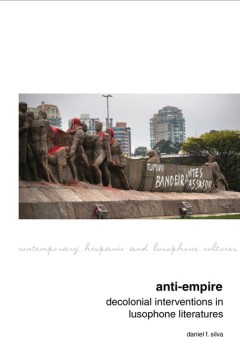
Anti-Empire : Decolonial Interventions in Lusophone Literatures
Anti-Empire explores how different writers across Lusophone spaces have engaged with imperial and colonial power at its various levels of domination, while imagining alternatives to dominant discourses pertaining to race, ethnicity, culture, gender, sexuality, and class. Guided by a theoretically eclectic approach ranging from Psychoanalysis, Deconstruction, Postcolonial Theory, Queer Theory, a…
- Edition
- -
- ISBN/ISSN
- 9781786941008
- Collation
- -
- Series Title
- -
- Call Number
- 800 SIL a
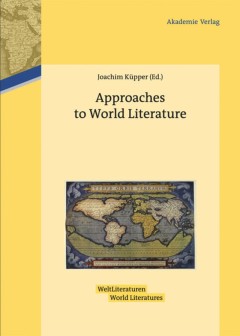
Approaches to World Literature
The present volume introduces new considerations on the topic of "World Literature", penned by leading representatives of the discipline from the United States, India, Japan, the Middle East, England, France and Germany. The essays revolve around the question of what, specifically in today's rapidly globalizing world, may be the productive implications of the concept of World Literature, which …
- Edition
- -
- ISBN/ISSN
- 9783050062716
- Collation
- 180 halaman
- Series Title
- WeltLiteraturen / World Literatures volume 1
- Call Number
- 800 APP
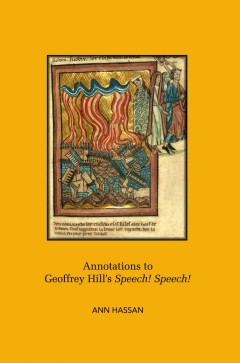
Annotations to Geoffrey Hill's Speech! Speech!
Geoffrey Hill’s Speech! Speech! (2000) encapsulates two thousand years’ worth of utterances in a symbolic act of remembrance and expression of despair for the current age, in which we find “our minds and ears fouled by degraded public speech—by media hype, insipid sermons, hollow political rhetoric, and the ritual misuse of words.” Through 120 densely allusive stanzas—“As many as …
- Edition
- -
- ISBN/ISSN
- 9781468129847
- Collation
- 282 halaman
- Series Title
- -
- Call Number
- 800 HAS a
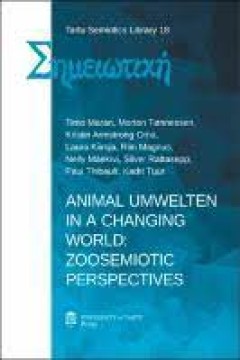
Animal Umwelten in a Changing World : Zoosemiotic Perspectives
The book raises semiotic questions of human–animal relations: what is the semiotic character of different species, how humans endow animals with meaning, and how animal sign exchange and communication has coped with environmental change. The book takes a zoosemiotic approach and considers different species as being integrated with the environment via their specific umwelt or subjective percep…
- Edition
- -
- ISBN/ISSN
- 9789949772810
- Collation
- 276 halaman
- Series Title
- -
- Call Number
- 400 MAR a

Affective Disorders : Emotion in Colonial and Postcolonial Literature
Situated at the intersection of postcolonial studies, affect studies, and narratology, Affective Disorders explores the significance of emotion in a range of colonial and postcolonial narratives. Through close readings of Naguib Mahfouz, Joaquim Maria Machado de Assis, and Upamanyu Chatterjee, among others, Bede Scott argues that literary representations of emotion need not be interpreted solel…
- Edition
- -
- ISBN/ISSN
- 9781786941701
- Collation
- -
- Series Title
- Postcolonialism Across the Disciplines
- Call Number
- 800 SCO a
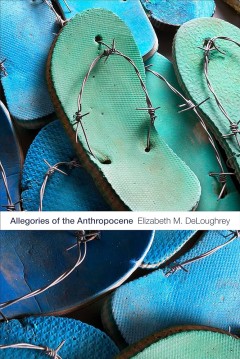
Allegories of the Anthropocene
In Allegories of the Anthropocene Elizabeth M. DeLoughrey traces how indigenous and postcolonial peoples in the Caribbean and Pacific Islands grapple with the enormity of colonialism and anthropogenic climate change through art, poetry, and literature. In these works, authors and artists use allegory as a means to understand the multiscalar complexities of the Anthropocene and to critique the v…
- Edition
- -
- ISBN/ISSN
- -
- Collation
- -
- Series Title
- -
- Call Number
- 800 LOU a
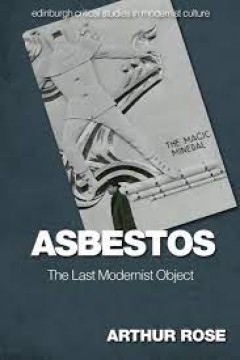
Asbestos – The Last Modernist Object
Few modern materials have been as central to histories of environmental toxicity, medical ignorance, and legal liability as asbestos. A naturally occurring mineral fibre once hailed for its ability to guard against fire, asbestos is now best known for the horrific illnesses it causes. This book offers a new take on the established history of asbestos from a literary critical perspective, showin…
- Edition
- -
- ISBN/ISSN
- 9781474482448
- Collation
- -
- Series Title
- -
- Call Number
- -
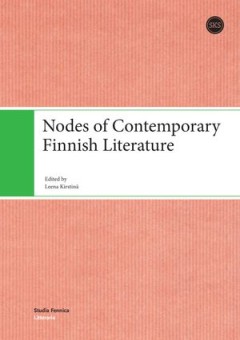
Nodes of Contemporary Finnish Literature
This book examines phenomena from Finnish and Finnish-Swedish literature written in the years between the 1980s and the first decade of the new millennium. Its objective is to study this interesting era of literary history in Finland and to sketch some possible directions for future development by identifying literary turning points which have already occurred.
- Edition
- -
- ISBN/ISSN
- 9789522223593
- Collation
- -
- Series Title
- Studia Fennica. Litteraria
- Call Number
- 800 NOD
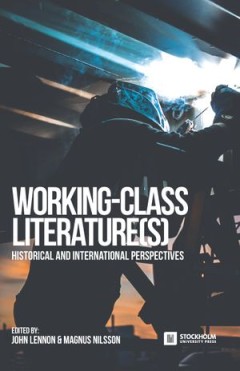
Working-Class Literature(s) : Historical and International Perspectives
"The aim of this collection is to make possible the forging of a more robust, politically useful, and theoretically elaborate understanding of working-class literature(s). These essays map a substantial terrain: the history of working-class literature(s) in Russia/The Soviet Union, The USA, Finland, Sweden, The UK, and Mexico. Together they give a complex and comparative – albeit far from com…
- Edition
- -
- ISBN/ISSN
- 9789176350515
- Collation
- -
- Series Title
- -
- Call Number
- 800 WOR
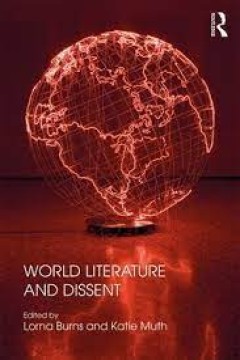
World Literature and Dissent
World Literature and Dissent reconsiders the role of dissent in contemporary global literature. Bringing together scholars of world and postcolonial literatures, the contributors explore the aesthetics of resistance through concepts including the epistemology of ignorance, the rhetoric of innocence, the subversion of paying attention, and the radical potential of everydayness. Add…
- Edition
- -
- ISBN/ISSN
- 9781351357715
- Collation
- -
- Series Title
- -
- Call Number
- 800 WOR
 Computer Science, Information & General Works
Computer Science, Information & General Works  Philosophy & Psychology
Philosophy & Psychology  Religion
Religion  Social Sciences
Social Sciences  Language
Language  Pure Science
Pure Science  Applied Sciences
Applied Sciences  Art & Recreation
Art & Recreation  Literature
Literature  History & Geography
History & Geography